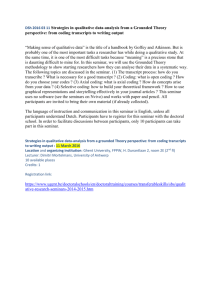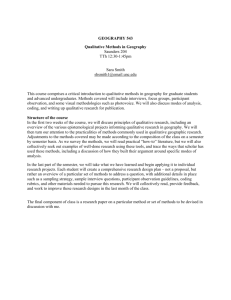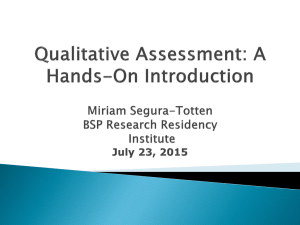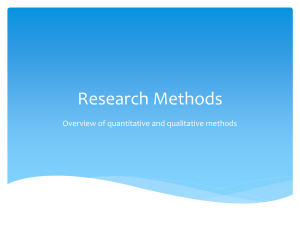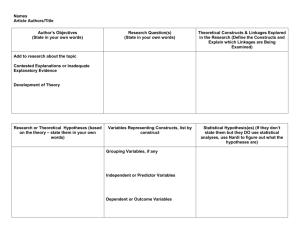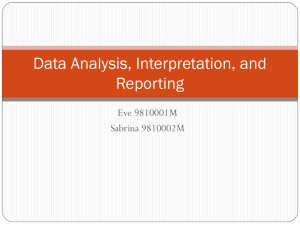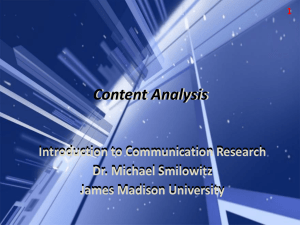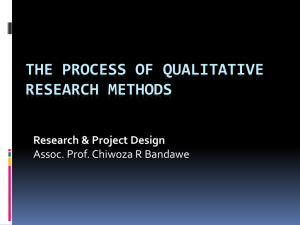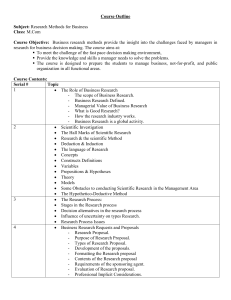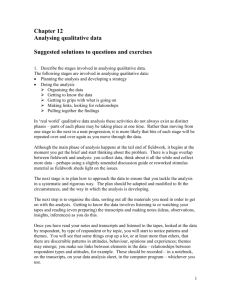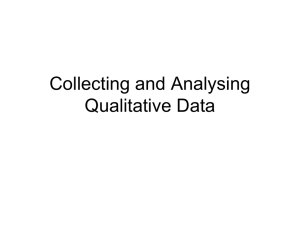Semester Examination Prep
advertisement
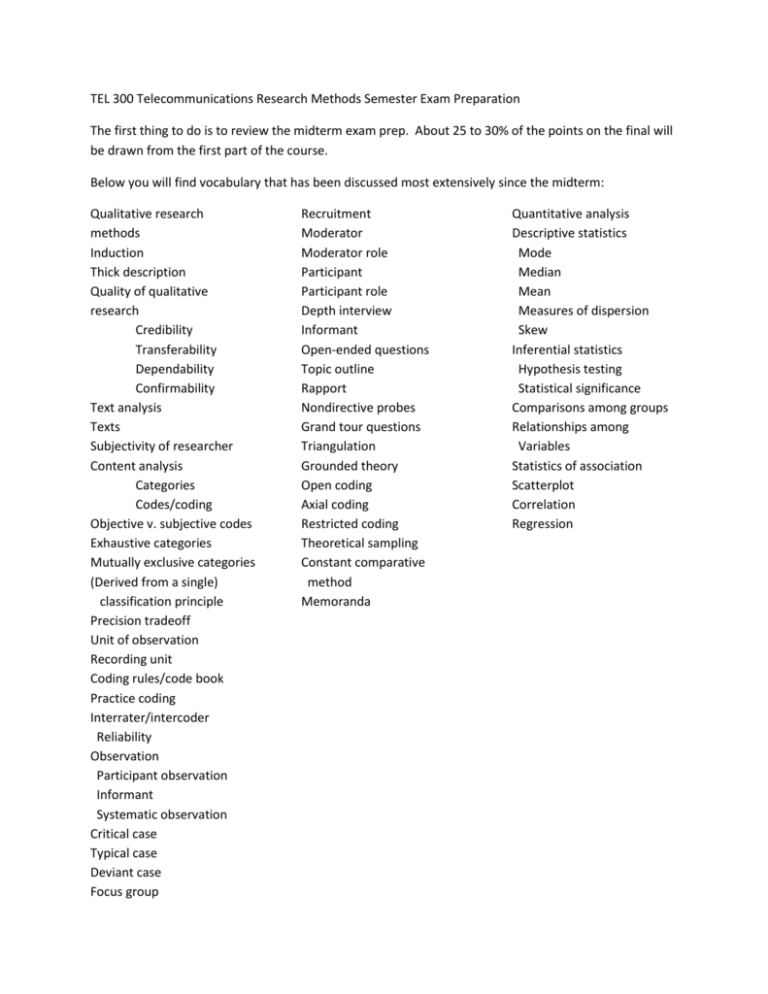
TEL 300 Telecommunications Research Methods Semester Exam Preparation The first thing to do is to review the midterm exam prep. About 25 to 30% of the points on the final will be drawn from the first part of the course. Below you will find vocabulary that has been discussed most extensively since the midterm: Qualitative research methods Induction Thick description Quality of qualitative research Credibility Transferability Dependability Confirmability Text analysis Texts Subjectivity of researcher Content analysis Categories Codes/coding Objective v. subjective codes Exhaustive categories Mutually exclusive categories (Derived from a single) classification principle Precision tradeoff Unit of observation Recording unit Coding rules/code book Practice coding Interrater/intercoder Reliability Observation Participant observation Informant Systematic observation Critical case Typical case Deviant case Focus group Recruitment Moderator Moderator role Participant Participant role Depth interview Informant Open-ended questions Topic outline Rapport Nondirective probes Grand tour questions Triangulation Grounded theory Open coding Axial coding Restricted coding Theoretical sampling Constant comparative method Memoranda Quantitative analysis Descriptive statistics Mode Median Mean Measures of dispersion Skew Inferential statistics Hypothesis testing Statistical significance Comparisons among groups Relationships among Variables Statistics of association Scatterplot Correlation Regression Short answer questions How would you develop and test coding categories for a study of depiction of courage in current films? Outline the steps you go through in a grounded theory analysis of interviews of sportscasters. What ethical concerns would you have with regard to an anonymous participant observation of a hackers’ convention? How would you prepare to conduct in-depth interviews of game developers? What problems do focus group moderators need to be able to deal with and what skills do they need to do so? How do you determine the quality of the results from a qualitative research study? What are the advantages and disadvantages of focus groups/depth interviewing/observation/content analysis/qualitative textual analysis as a method? [The question can be applied to any of these methods] Essay questions: What are the most significant differences in philosophy between quantitative and qualitative researchers and how are those differences reflected in the methods the researchers use? How is grounded theory planned and carried out and how does that process reflect its goals? Explain how 1) qualitative textual analysis and 2) content analysis could be used to evaluate gender roles portrayed in reality television. How would the results differ? How do the findings each provides reflect the strengths and weaknesses of the two methods? Say you wanted to figure out what kinds of enjoyment/pleasure hardcore gamers got from playing their favorite games. Compare the use of a survey, focus groups and depth interviews as methods to approach this question with regard to the kinds of information you are likely to get and the qualities of that information. Be sure to note how the strengths and weaknesses of each method are reflected in the results you are likely to generate.

